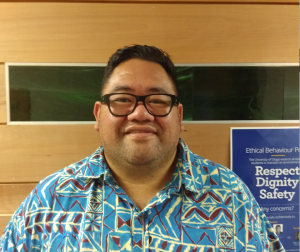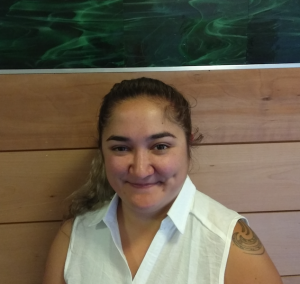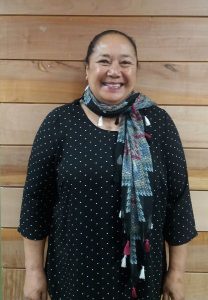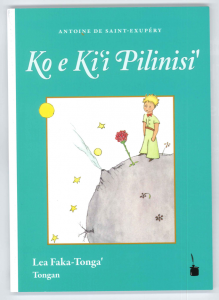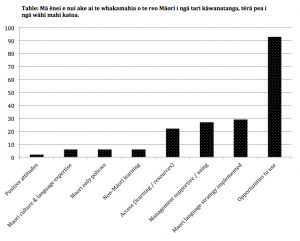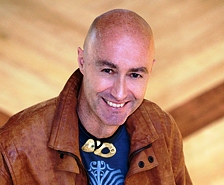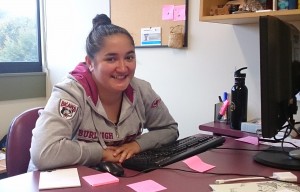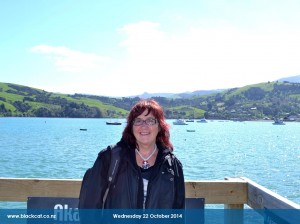New Te Tumu Staff
Te Tumu is fortunate to have two new staff teaching at Te Tumu this year.
Dr Michael Ligaliga was raised in Upolu, Samoa, and attended school in both Samoa and Auckland. He them moved to Hawai’i to pursue undergraduate study at Brigham Young University in Hawai’i, graduating in Political Science and International Peace Building. He first came to Dunedin in 2011, undertaking a PGDipArts at the National Centre for Peace and Conflict Studies, followed by an MA.
Michael then moved back to Hawai’i where he taught at BYU-H, and was for a time the acting Director of the David O. McKay Center for Intercultural Understanding. He then returned to Otago in 2015 to enrol in his PhD at the NCPCS, with Dr Heather Devere as his primary supervisor. Not only is Michael the first Pacific Islands doctoral student to graduate from the Centre, but his thesis was deemed to be ‘exceptional’ (i.e. when all the examiners of a candidate’s thesis agree that the thesis is among the top 10% of theses examined.)
Michael’s research focuses on domestic and family violence through a Peace and Conflict Studies lens, and the application of Peace and Conflict theories to aspects of Pacific societies. In particular he played with Galtung’s Typology of Violence to highlight the “invisible” nature of societal violence. Michael will continue to pursue and publish this research while he is here in Te Tumu.
This year the university is trialing a new co-taught paper at summer school (PACR101) designed to help integrate new Pasifika students into the university lifestyle and community. Michael arrived in January, and was straight into the classroom teaching these students. This year he will be giving some guest lectures in PACI101 “Pacific Societies” and PACI201″Contemporary Pacific Islands Issues”, and in Semester Two he will teaching PACI410 “Pacific Leadership” and PACI310, a special topic based on his doctoral research.
Michael is pleased to be back “home” in Dunedin, as are his wife Faalima and their daughter and son, Joanie and Leahcim.
Dr Gianna Leoni (Ngati Kuri and Ngai Takoto) is well-known to almost anyone associated with Te Tumu. She is a former Tumuaki (President) of Te Roopu Māori (in 2013), and undertook her BA(Hons) at Te Tumu, as well as her MA and PhD. Her PhD, written in te reo Māori, looked at the use of te reo in government departments. She has also been a tutor and senior tutor, research assistant, teaching fellow, and a co-editor of Te Kōparapara, Te Tumu’s MAOR102 textbook.
Her last position was as a postdoctoral fellow, funded by Ngā Pae o te Māramatanga (Whai Rawa theme), investigating the expression of economic aspirations in te reo Māori in the past, present and future.
Gianna has been appointed as a lecturer, and this year will be teaching MAOR311, one of our 300-level Māori language papers, and INGS501, the core theory and methods paper for the Master of Indigenous Studies programme. She will also co-ordinate and teach into MAOR206/306 (He Pūkenga Tuhi), a Māori writing skills paper.
Gianna will continue her research from her postdoctoral programme, but is also interested in issues of Māori identity. She sees a multiplicity of identities, and wishes to break down stereotypes of what “Māori” is meant to mean. She believes it is important for her research to be relevant and contribute to the communities she is involved with, the local Dunedin Māori community and her hau kāinga in Muriwhenua.
In her spare time, Gianna is president of the South Pacific Rugby League and Sports Club. The club, with a mainly Māori and Pasifika membership, now boasts 15 teams playing rugby league, basketball, softball and netball.
Talitali fiefia, to our new Pasifika lecturer
Mālō e lelei. Te Tumu is very pleased to introduce our new lecturer, Dr. Telesia Kalavite, who has just joined our staff. Telesia will be teaching in the Pacific Islands Studies programme, as well as in the Indigenous Development programme.
Dr Kalavite is a professional Tongan educator who has taught in Tonga, Fiji, New Zealand and Australia at primary, secondary and tertiary institutions for many years. Her tertiary education working experiences were at Tonga Institute of Education, Waikato Institute of Technology, The University of Waikato, The University of Southern Queensland and now The University of Otago. Her qualifications include: Teachers’ Certificates (TC), a Diploma in Education (DipEd), a Bachelor of Arts (BA), a Postgraduate Certificate in Education (PGCertEd), a Master of Education (MEd), a Postgraduate Diploma in Educational Leadership (PGDipEDL), and a Doctor of Philosophy (PhD). Whilst in the teaching profession Telesia worked for the development of her own Tongan people as well as Pacific peoples’ communities. She is a passionate community person who actively participated in many youth, church, university, community groups and non-government organisations.
She believes in grassroots development to alleviate the harsh conditions of disadvantage. Her passion and research interest are in Pacific and indigenous educational development worldwide in particular New Zealand, Australia and the Pacific region.
Dr Kalavite is also a noted translator of works between the English and Tongan languages. One of her most recent works is Ko e Ki’i Pilinisi’, a translation of Antoine de Saint-Exupery’s famous novella, Le Petit Prince (The Little Prince). We are excited that she will be offering an introductory Tongan language paper in Summer School next year.
We are delighted to welcome Telesia, and her husband Sione, to Te Tumu, and to Dunedin.
Professor Poia Rewi – Staff Research Profile
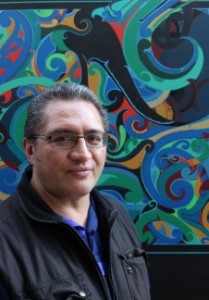 Ko Ahorangi Poia Rewi te Tumuaki o Te Tumu, engari, he whakahirahira hoki āna mahi rangahau kia ora ai te reo Māori. Ko ia hoki tētahi o ngā ētita o te pukapuka, The Value of the Māori Language: Te Hua o te Reo Māori (Huia Publishers).
Ko Ahorangi Poia Rewi te Tumuaki o Te Tumu, engari, he whakahirahira hoki āna mahi rangahau kia ora ai te reo Māori. Ko ia hoki tētahi o ngā ētita o te pukapuka, The Value of the Māori Language: Te Hua o te Reo Māori (Huia Publishers).
He uiui tēnei, he mea mahia mā runga īmēra.
Te Tumu: e te rangatira, tēnā koe. Ka harikoa te ngākau i tō whakaae kia uiuia mō tēnei putanga o tō tātou rangitaki (blog).
Nā, i tērā tau i whakatūria ai koe hei Tīni, arā hei tumuaki o Te Tumu, ā, i tēnei tau i whakaahorangitia koe. He mahi nunui pea ēnei tūranga hei hāpai i te reo Māori i roto i ngā akoranga o Te Tumu, i ngā mahi rangahau, i te whare wānanga hoki. Engari, ka whakapā tāku pātai tuatahi ki tō huarahi ki ēnei tūranga hou. I tō tamarikitanga me tō kuranga, he mea nui te reo Māori ki a koe? Ka aha koe ki te whare wānanga? Nā te aha koe i tahuri ai ki tō mahi hei pūkenga reo Māori? Ko wai ngā pūkenga e whai nei koe?
Poia Rewi: He roa pea te takahanga ki konei. Nā Hine-maringanui pea, nā ngā mana o ngā tīpuna pea, nā ngā pākeke mōhio pea ki te arataki, nā taku hapū ake hoki i runga i te mea, katoa rātou i whakawatea i a au i nga kawenga o te hapū i wātea ai au ki te whai i te ao mātauranga nei. Āpiti atu, ko ngā hoa mahi i roto i ngā whare wānanga e rua (otirā i ngā whare wānanga maha i ngā mahi rangahau) – nā ngā hoa mahi nei au i whakawātea, arā, ka pīkauhia e rātou ngā mahi akoako kia oti i a au ngā rangahau. Ko taku whakapae, nā te rangahau rawa i ū ai te piki tūranga ki uta.
Te Tumu: I tō tamarikitanga me tō kuranga, he mea nui te reo Māori ki a koe?
Poia Rewi: Ehara i te mea i noho motuhake te reo: i aro nui au ki ngā mea Māori (noho marae, mahi whānau, haere ki ngā huihui)
Te Tumu: Ka aha koe ki te whare wānanga?
Poia Rewi: Ko aku aronga nui i ēnei tau, 1) ko te whakapakari hoa mahi, 2), ko te whakapakari i ngā kaupapa akoako a Te Tumu, c) ko te whakapūmau me te whakatairanga i ngā mātauranga Māori, Pasifika , iwi taketake ki te Whare Wānanga o Otākou.
Te Tumu: Nā te aha koe i tahuri ai ki tō mahi hei pūkenga reo Māori?
Poia Rewi: i tīmata noa iho au hei kaiāwhina mā Te Haumihiata Mason i Waikato, koia taku whakamarumaru whakaako reo tuatahi, hua noa, ka hapū tētahi kaiako reo, ka riro māku e kawe, nā, kua pūkenga reo Māori.
Te Tumu: Ko wai ngā pūkenga e whai nei koe?
Poia Rewi: Kua whakahuatia e au a Te Haumihiata, arā atu ano a Te Wharehuia, a Hirini, a Tīmoti. Arā anō ngā pūkenga ā-iwi nei, i aku hapū, i aku iwi nui tonu.
Te Tumu: Kua tino mārama nei, he nui rawa atu tō aroha ki te reo Māori, ā, kei te pīrangi koe kia kōrerotia whānuitia te reo i roto i te hapori. He aha ōu wawata mō te reo?
Poia Rewi: kia nui ake te korerotia, kia tokomaha ake te hunga korero; mātua, koinā.
Te Tumu: Me aha kia tutuki ai?
Poia Rewi: Kia tangata whenua anō te reo i te whenua nei, kātahi ka tutuki.
Te Tumu: he huhua ngā momo kura onāianei e whakaako ana i te reo Māori, engari kei ngā whare wānanga ngā tini mahi rangahau. Whakamāramatia tō koutou hōtaka rangahau ko āu ākonga paerunga. He aha ngā painga e tūmanakohia ana? He aha ērā atu rangahau kāore anō kia meatia, engari kei te matea tonu?
Poia Rewi: ko Te Kura Roa te Kawenga Rangahau matua – he kaupapa nā māua ko Ahorangi Rawinia Higgins o Te Kawa A Māui. E mātua aro ana ki te hua o te reo Māori (ahakoa hapori, ahakoa tari kāwanatanga), Ko Te Kura Roa – Waiaro te wāhi ki Otākou, anā, ko tāna he titiro ki te waiaro o ngā tari kāwanatanga ki te reo Māori i Aotearoa. I Tīmata i 2011. Ko ngā kairangahau kua whai waahi ki tenei rangahau o Otākou nei, ko Dr Delyn Day, ko Gianna Leoni, ko Norma Bartlett, ko Merirangitiria Rewi, ko Julia Coates, ko Suzanne Duncan, ko Awhi Wakefield, ko Kelly-Ann Tahitahi, ko Tawini WHite, ko Raphael Richter-Gravier, ko Jacob Myhre, ko Victoria Campbell, ko Te Hau White, ko Marcelle Wharerau.
Ko ngā mātua kitenga o te rangahau rā, kia kura unua nei te whakarauora reo, arā, ko tā tētahi tētahi riu he titiro ki te whakapūmau i te oranga o te reo, ko tā tētahi, he he whai kia tipu te reo.
Te Tumu: He aha ngā painga e tūmanakohia ana?
Poia Rewi: kia whakahingāia mai ngā tari kāwanatanga, me te motu whānui o Aotearoa ka pai ake te waiaro ki te reo Māori.
Te Tumu: He aha ērā atu rangahau kāore anō kia meatia, engari kei te matea tonu?)
Poia Rewi: Kua nui pea nga rangahau, ko te tīni i te waiaro te mate nui. Hei ahakoa, ka whakamanatia te Pire Reo Māori ākuanei, tera pea koinā te rongoā ināhoki, ko tētahi o ngā tohutohu matua o te Pire, kia riro mā te iwi āna kaupapa mō te reo e kōkiri, ka mutu, ka mātua tophu Te Taura Whiri i te Reo Māori hei whai i te aro mai o ngā Tari Kāwanatanga ki te reo Māori. Kāore anō ngā tari kāwanatanga kia āta aro turukihia ā-hōmiromiro tonu nei. Koinā pea te mātua niho o te Pire Reo Māori ā taka iho ki te anamata.
Koia ēnei ngā mea e tautoko ana i te whakamahia o te reo Māori i ngā tari kāwanatanga:
Te Tumu: Kia ora, e hoa.
Nā, ā te Tāite, 14 Hōngongoi a Poia tū ai ki te kōrero mō ana mahi rangahau. Kō tāna Kauhau Ahorangi (Inaugural Professorial Lecture) tēnei. Hei te 5:30pm, Burns 2, kei te Whare Wānanga o Otākou. Haramai nei ki te whakarongo ki a ia.
Staff Profile: Professor Paul Tapsell
Professor Paul Tapsell (Ngāti Whakaue and Ngāti Raukawa) talks about his research journey and philosophy. As part of our occasional series of profiling Te Tumu faculty members, Dr Matiu Rātima interviews Prof. Tapsell, whose research interests include Māori identity in 21st century New Zealand, cultural heritage & museums, taonga trajectories in and beyond tribal contexts, Māori values within governance policy frameworks, Indigenous entrepreneurial leadership, marae and mana whenua, genealogical mapping of tribal landscapes and Te Arawa historical and genealogical knowledge. (Audio length: 17.5 minutes.)
New Research Assistant for Te Tumu
Te Tumu is really pleased that Gianna Leoni (Ngati Kuri and Ngai Takoto) has now joined the staff as a Research Assistant for 2015. Gianna has long been a “fixture” at Te Tumu as a student and tutor, and is also currently putting the last touches on her doctoral thesis on the use of te reo Māori in government departments. As RA, Gianna will be working primarily with the editors of Te Tumu’s new textbook (currently being written) for its MAOR102: Māori Society paper. Gianna will also be assisting Te Tumu staff with their own individual research projects.
Nau mai, haere mai, Gianna.
In the meantime Gianna is also helping coordinate Te Tumu’s 25th Anniversary, which will run on 28-29 May. This is going to be a great weekend for former and present staff and students, and will be immediately followed by the 25th Anniversary of the Māori Centre/Te Huka Mātauraka (30-31 May). If you haven’t already registered for these events, click here now.
Profiling: Jenny Bryant-Tokalau
It is an occassional feature of Te Tumu’s Research Blog that we profile members of our staff. This post features Associate Professor Jenny Bryant-Tokalau, who, amongst her many other activities, is currently Programme Coordinator for Pacific Islands Studies and Chair of the Postgraduate Committee in Te Tumu.
Jenny Bryant-Tokalau (or Jenny Bryant as she was then known) was born in Dunedin and is descended from a mixture of British migrants who landed on the Otago coast between Moeraki and Surat Bay in the nineteenth century. Jenny’s mother grew up in North East Valley and was a secretary and later a teacher, and her Dad was a migrant rabbiter, saddler then electric linesman from Central Otago. Jenny is the eldest of three sisters and their Mum had hopes for them to be ‘like the Bronte sisters’. Fortunately this did not (quite) happen.
Jenny first visited the Pacific as a high school student when she was lucky enough to go on a school French trip to Noumea, New Caledonia. Later as an undergraduate Geography student, here at Otago, she went on a student exchange trip to Fiji for three months to carry out voluntary work at the National Archives in Suva. After a whole row of very old and decaying files about the island of Rotuma fell on top of her, Jenny decided to return the following year to gather material for her Post graduate dissertation. Three months of visiting Rotuman island families in the low cost housing settlements in Suva, the gold mine in Vatukoula and in the first Fiji capital of Levuka led to a successful dissertation outcome, and Jenny was on her way to a life of interesting research.
In 1975 Jenny was employed as an assistant lecturer in Geography at the University of Papua New Guinea. Her classes were large, and across the spectrum of environment, human geography and cartography. During her three years there Jenny travelled widely taking students on both biogeography and urban geography in the Highlands, visiting archaeological sites and carrying out her own MA research work on low-income housing and squatting in Port Moresby, Madang and Rabaul. Jenny also worked closely with the Lae City Council and the PNG Housing Authority. Although she loved PNG where life was very exciting and varied, a PhD and job beckoned at Monash University in Melbourne. There she tutored and lectured in Geography whilst working on her PhD on Aboriginal Housing with two years of assistance from the Australian Institute of Aboriginal Studies. Again, there was much fieldwork involved with long hours driving around Victoria from the northwest corner where the small town of Robinvale is located (where Jenny picked grapes and lived in a tent in the summer to fund her research), to the south west to the Framlingham Aboriginal Trust community, to Melbourne where she worked with the Aboriginal Housing, Health and Legal boards. Part-time consultancies with the Ministry of Housing and representations to the House of Representatives on Aboriginal housing filled in her spare time when not writing the PhD dissertation.
But the Pacific beckoned again. With the PhD almost completed Jenny took a job in Geography at the University of the South Pacific in Fiji where apart from teaching, consultancies, and running an environmental NGO she carried on with her research. At first, continuing from her by now major interest in housing for the poor, she became involved with assessing the size and conditions of squatter settlements across the country, and training students in such assessments. This lead to an involvement in growing poverty and inequalities, an appointment to the Fiji government’s committee on poverty, and then to more research on land and encroaching coastal environmental issues around the squatter settlements. All through the years at USP Jenny carried out work for various UN and regional agencies, especially the South Pacific Regional Environment Programme. Eventually she was kidnapped by UNDP and spent the next six years travelling around the Pacific and Asia working as a Sustainable Development Adviser and Head of Global Environment Facility programmes. In 2002 Jenny and family decided to return to NZ, to enable her husband Filipo to complete his PhD and for Jenny to take care of her mother. On Tino joined George St Normal School and Jenny worked firstly in Anthropology before joining Te Tumu. Her research continues in the Pacific, especially her other home of Fiji where she works largely around coastal urban land (the qoliqoli) and the urban poor, as well as on artificial islands as a response to climate change. Jenny has recently been appointed as an adjunct professor at USP where she maintains very close ties.
Click here to see Jenny’s research outputs, grants & distinctions, and supervisions on her official staff page.
Profiling: Jim Williams
Te Tumu’s Research Blog will be posting occasional profiles of our academic staff, highlighting their research interests and publication.
Introducing Dr Jim Williams.
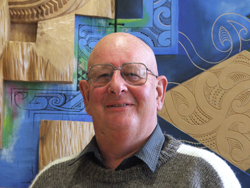 Jim is a Senior Lecturer and has been with Te Tumu since 1992.
Jim is a Senior Lecturer and has been with Te Tumu since 1992.
Research direction
* Ngāi Tahu history and language.
* Resource management including mahika kai, and comparisons with other Indigenous peoples.
Jim is currently exploring the dynamics of oral transmission of traditional stories, with a view to publishing a book, which will examine the extent to which Māori families pass on Māui stories, compared with Navajo and their stories about Mai’I (coyote – the trickster that predominates amongst Native Americans). A secondary theme will be looking at Europeans attitudes to those stories.
Jim is most interested in talking to prospective students about comparison of traditional ways with the views of contemporary Māori.
Recent supervisions
PhD
Delyn Day, “Te Awhio-Rangi: Te Toki Mata Ngero o Te Ao Whetu” 2009 – 2013
Anne-Marie Jackson, “The Taiapure Process and to What Extent it Needs to be Altered to Achieve Tangata Whenua Objectives”, 2009 – 2011
David McKay, “Indigenous Perspectives in Environmental Education” 2009 – 2013
MA
Henare Mita, “The Ngāi Tahu Claims Settlement Act 1998: The Quest for Ngāi Tahu Tino Rangatiratanga” 2008 – 2009
Katrina Bryant, “Hauā Matau Māori”, 2012 – 2014
BA(Hons)
Hori Barsdell “Pā” 2014.
Selected Publications
Book Chapters
(2014) “Food and the Maori” in Encyclopaedia of the History of Science, Technology and Medicine in Non-Western Cultures, Springer, Dordrecht
(2010) “Towards a Model for Indigenous Research on traditional topics” in Hokowhitu, B., Kermoal, N., Andersen, C., Reilly, M., Rewi, P. & Petersen, A. (2010, Indigenous Identity and Resistance: Researching the Diversity of Knowledge. Dunedin: University of Otago Press. Dunedin
Refereed Journal articles
2014 Williams, Jim 2014; “He Aitua nā Tamatea”, in Te Pouhere Kōrero Journal, Vol. 7, Pp.47-56.
2013 Williams, Jim 2013; “Juxtaposed Narratives of “The Battle of Crowheart Butte”, in Ethnohistory, Vol. 60 (4) Fall 2013, Pp 567-579.
2012 Williams, Jim 2012; Ngāi Tahu Kaitiakitanga, in MAI Journal 2012, Volume 1 (2):89-102.
2010 Williams, Jim 2010; ‘Mahika kai: THE HUSBANDING OF CONSUMABLES BY MĀORI IN PRE_CONTACT TE WĀIPOUNAMU”, in Journal of the Polynesian Society, Vol. 119 (2) Pp 149-180
2006 Williams, Jim 2006; ‘Resource management and Māori attitudes to water in southern New Zealand’, in New Zealand Geographer Vol 62:75-82
Contact details
Please feel free to call in or make contact with Jim to discuss supervision.
Room Richardson South Tower, Rm 4S7
Phone 64 3 479 7385
Email jim.williams@otago.ac.nz

